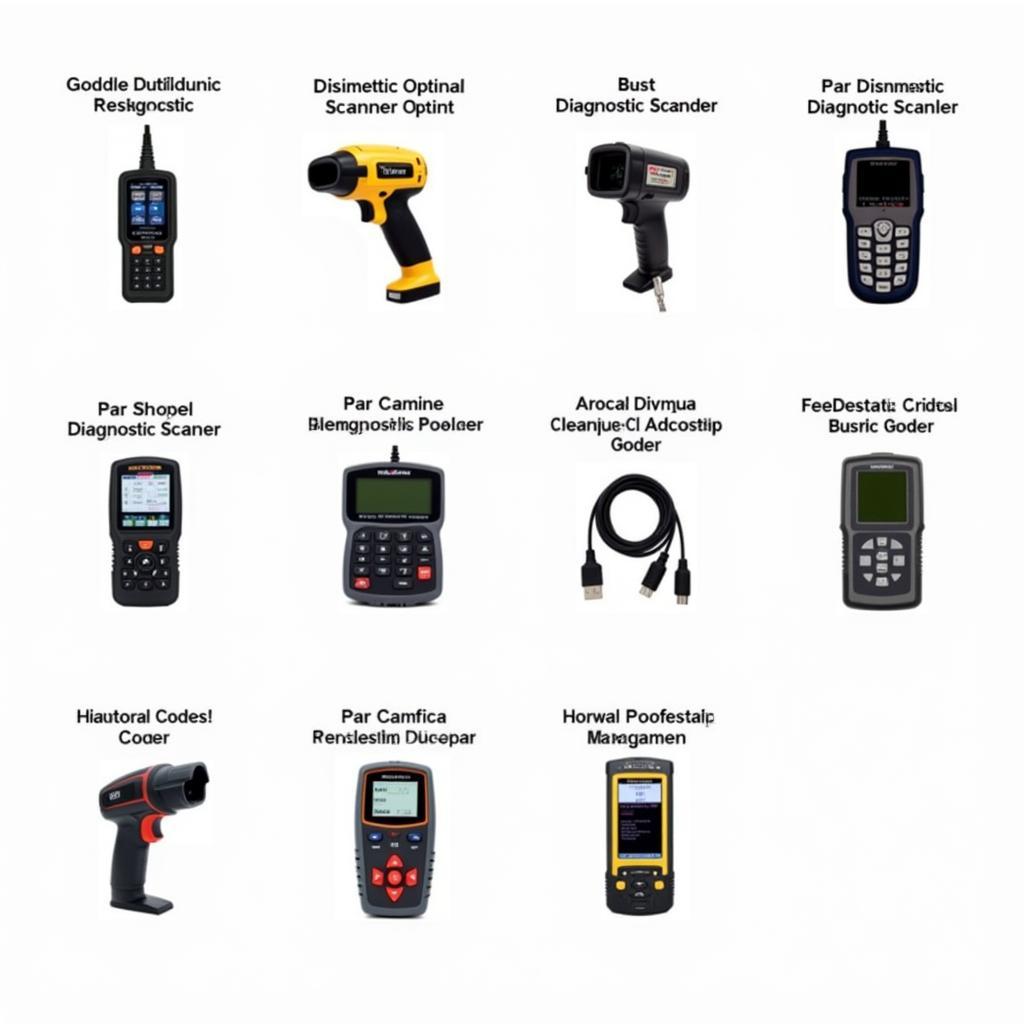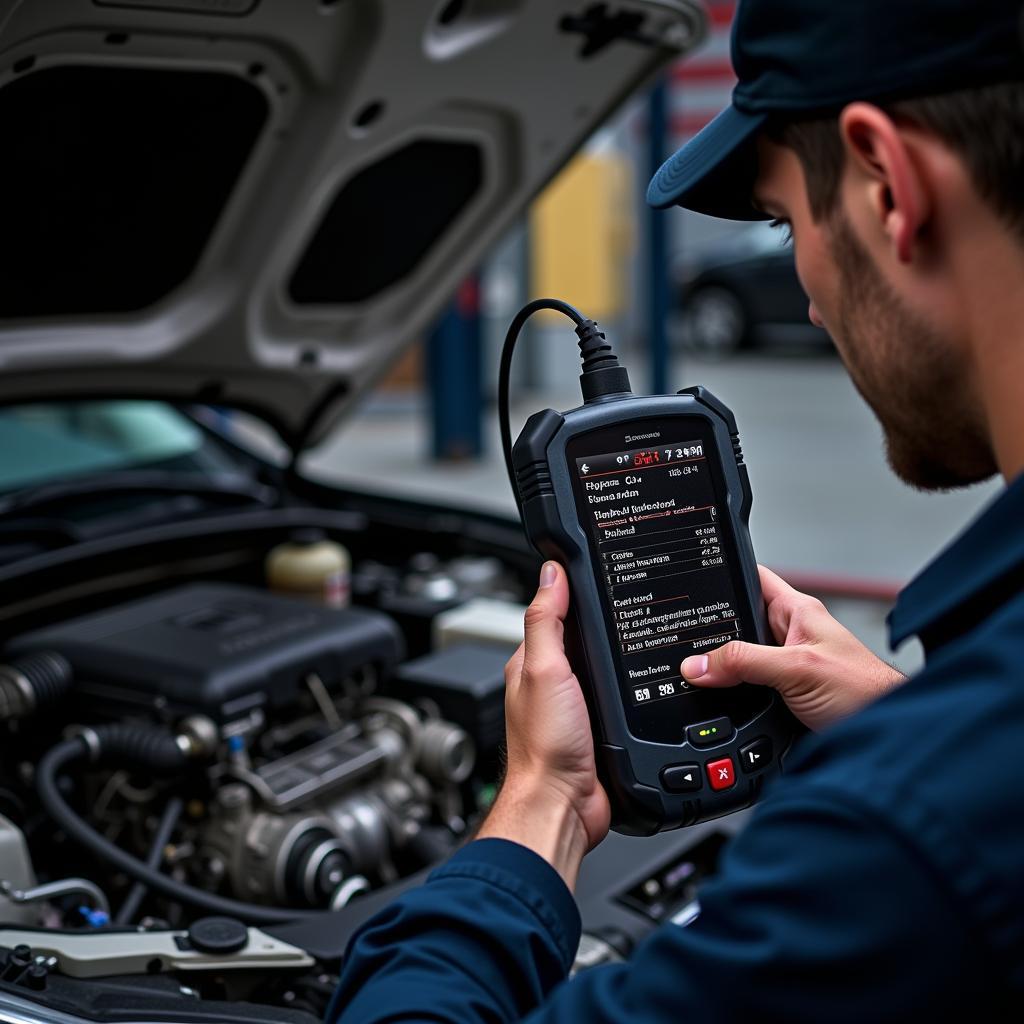Investing in a car diagnostic scanner can be a game-changer for car owners and professionals alike. Whether you’re tired of expensive mechanic visits or you’re looking to take your DIY car maintenance to the next level, understanding how to choose and use a car diagnostic scanner is essential.
Why You Need a Car Diagnostic Scanner
Modern vehicles are equipped with complex computer systems that control everything from engine performance to safety features. When something goes wrong, these systems generate diagnostic trouble codes (DTCs). A car diagnostic scanner acts as the bridge between you and your car’s computer, allowing you to:
- Read and understand DTCs: Instead of seeing a cryptic “Check Engine” light and wondering what’s wrong, a scanner tells you exactly what the issue is.
- Reset the check engine light: After addressing the underlying problem, you can use the scanner to clear the DTC and turn off the warning light.
- Access live data streams: Monitor your car’s performance in real-time, observing parameters like engine RPM, coolant temperature, oxygen sensor readings, and more.
- Perform advanced diagnostics: Some scanners enable functions like ABS bleeding, injector coding, and key programming.
Types of Car Diagnostic Scanners
The market offers a wide range of car diagnostic scanners, each tailored to different needs and budgets. Here’s a breakdown:
1. Basic Code Readers:
- Best for: Car owners seeking to read and clear basic DTCs.
- Features: Typically handheld devices that display the code and its definition. Some models might offer limited live data viewing.
- Price: Most affordable option.
2. OBD-II Scanners:
- Best for: DIY enthusiasts and hobbyists who want more detailed information beyond basic codes.
- Features: Read and clear a wider range of DTCs, provide live data streams, and might offer some advanced functions.
- Price: Mid-range option.
3. Professional-Grade Scanners:
- Best for: Professional mechanics and experienced technicians.
- Features: Comprehensive diagnostic capabilities, including bidirectional control (sending commands to the car’s systems), advanced programming functions, and access to manufacturer-specific data.
- Price: The most expensive option.
 Various Car Diagnostic Scanners Displayed
Various Car Diagnostic Scanners Displayed
Factors to Consider When Buying a Car Diagnostic Scanner
Before you buy a car diagnostic scanner, consider these factors:
- Your Budget: Determine how much you’re willing to spend.
- Your Skill Level: Are you a beginner or an experienced mechanic? Choose a scanner that aligns with your expertise.
- Vehicle Compatibility: Ensure the scanner supports the make, model, and year of your car.
- Features: Prioritize the features that are most important to you, such as live data streaming, bidirectional control, or special functions.
- User Interface: Opt for a scanner with a user-friendly interface, intuitive menus, and clear display.
- Software Updates: Regular software updates are crucial to ensure compatibility with newer vehicle models and access to the latest features.
Beyond the Basics: Advanced Diagnostic Capabilities
While reading and clearing codes are essential, certain advanced features can be invaluable:
- Bi-Directional Control: Allows you to interact with the vehicle’s systems. For instance, you can command a fuel injector to test its operation.
- ABS Bleeding: This function helps remove air bubbles from the anti-lock brake system, ensuring optimal braking performance.
- Key Programming: Some scanners enable you to program new keys, a feature that can save you a trip to the dealership.
- ECU Coding: Access and modify the settings of various electronic control units (ECUs) in your vehicle.
 Mechanic Using an Advanced Car Diagnostic Scanner
Mechanic Using an Advanced Car Diagnostic Scanner
Carly Diagnostic BMW
For BMW owners, the Carly Diagnostic tool offers a tailored diagnostic experience. Designed specifically for BMW vehicles, Carly provides in-depth insights into your car’s health, allowing you to perform various coding and maintenance tasks.
Conclusion
A car diagnostic scanner is more than just a tool—it’s an investment in your vehicle’s well-being and your peace of mind. By choosing the right scanner and understanding its capabilities, you can empower yourself to take control of your car maintenance, diagnose problems accurately, and potentially save significant money on repair costs. When you’re ready to buy a car diagnostic scanner, remember to consider your needs, budget, and the specific requirements of your vehicle.
Frequently Asked Questions (FAQs)
1. Do I need a car diagnostic scanner if my car is still under warranty?
Even with a warranty, having a scanner can be beneficial. It lets you understand potential issues before visiting a mechanic, potentially preventing unnecessary repairs.
2. Are car diagnostic scanners universal?
While most cars manufactured after 1996 use the OBD-II standard, some scanners are model-specific. Always verify compatibility before purchasing.
3. Can I use a car diagnostic scanner on multiple cars?
Yes, most scanners are compatible with a wide range of vehicles. However, certain advanced functions might be limited to specific makes and models.
4. Are there any risks associated with using a car diagnostic scanner?
When used correctly, diagnostic scanners are safe. However, avoid tampering with settings or performing procedures you’re not familiar with. If in doubt, consult a qualified mechanic.
5. Where can I find reliable information about car diagnostic scanners?
Websites like DiagFixPro provide comprehensive reviews, guides, and resources to help you make informed decisions about car diagnostic tools.
For additional assistance with car diagnostic scanners, feel free to reach out to our team via WhatsApp at +1(641)206-8880 or email us at [email protected]. We are available 24/7 to assist you.

Leave a Reply